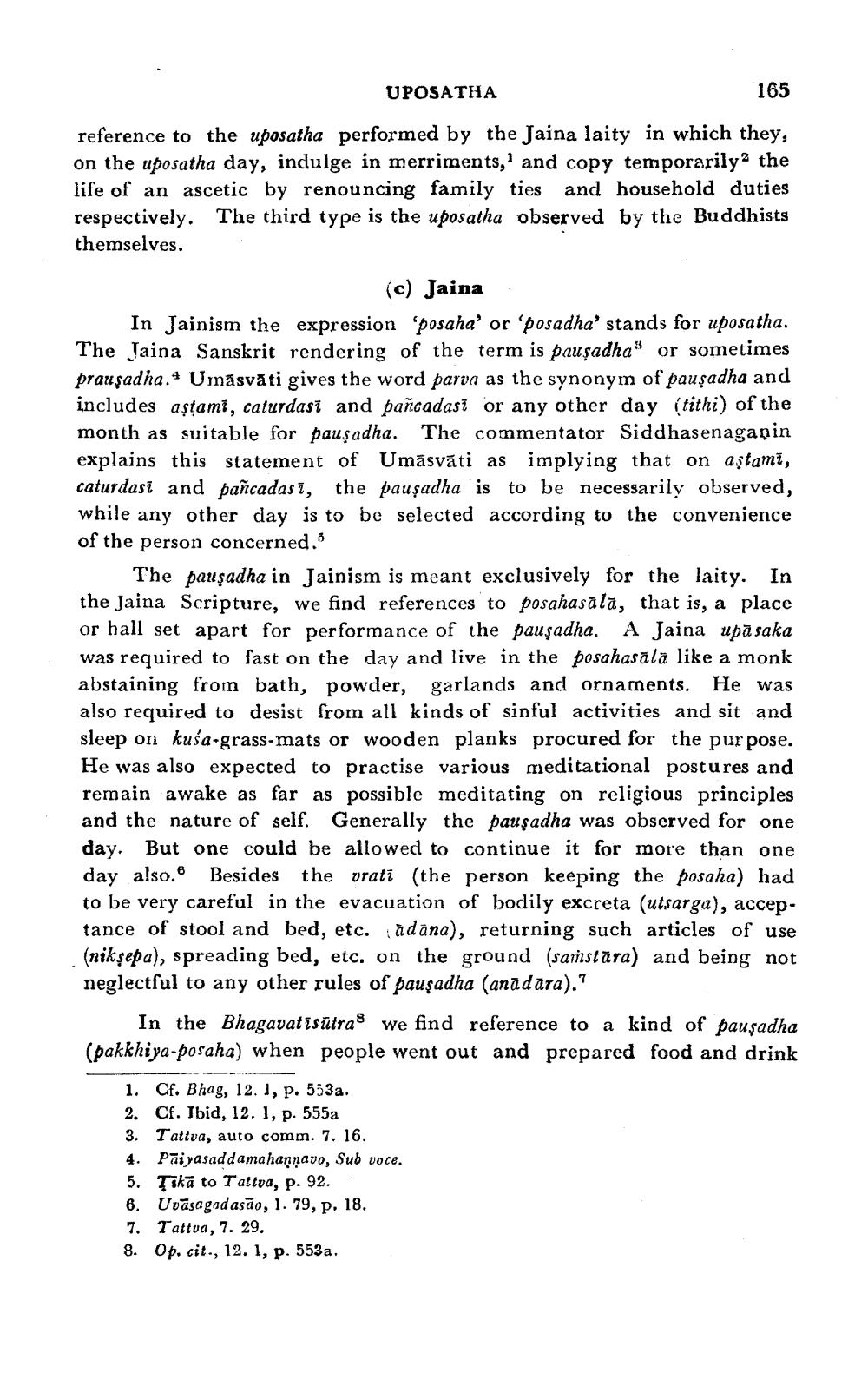________________
UPONATHA
165
reference to the uposatha performed by the Jaina laity in which they, on the uposatha day, indulge in merriments,' and copy temporarily the life of an ascetic by renouncing family ties and household duties respectively. The third type is the uposatha observed by the Buddhists themselves.
(c) Jaina In Jainism the expression posaha' or 'posadha' stands for uposatha. The Jaina Sanskrit rendering of the term is paușadha" or sometimes prauşadha.4 Umāsvāti gives the word parva as the synonym of paușadha and includes aştami, caturdasi and pañcadasi or any other day (tithi) of the month as suitable for pausadha. The commentator Siddhasenagapin explains this statement of Umāsvāti as implying that on aştami, caturdasi and pañcadasī, the paușadha is to be necessarily observed, while any other day is to be selected according to the convenience of the person concerned.”
The pauşadha in Jainism is meant exclusively for the laity. In the Jaina Scripture, we find references to posahasala, that is, a place or hall set apart for performance of the pausadha. A Jaina upā saka was required to fast on the day and live in the posahasāla like a monk abstaining from bath, powder, garlands and ornaments. He was also required to desist from all kinds of sinful activities and sit and sleep on kuśa-grass-mats or wooden planks procured for the purpose. He was also expected to practise various meditational postures and remain awake as far as possible meditating on religious principles and the nature of self. Generally the pauşadha was observed for one day. But one could be allowed to continue it for more than one day also. Besides the vrati (the person keeping the posaha) had to be very careful in the evacuation of bodily excreta (utsarga), acceptance of stool and bed, etc. adana), returning such articles of use (niksepa), spreading bed, etc. on the ground (saṁstāra) and being not neglectful to any other rules of pauşadha (anādāra).?
In the Bhagavat īsūtra8 we find reference to a kind of pauşadha (pakkhiya-posaha) when people went out and prepared food and drink
1. Cf. Bhag, 12. 1, p. 553a. 2. Cf. Ibid, 12. 1, p. 555a 3. Tattva, auto comm. 7. 16. 4. Pāiyasaddamahannavo, Sub voce. 5. Tikā to Taltva, p. 92.. 6. Uvāsagadasão, 1. 79, p. 18. 7. Tattva, 7. 29. 8. Op. cit., 12. 1, p. 553a.




